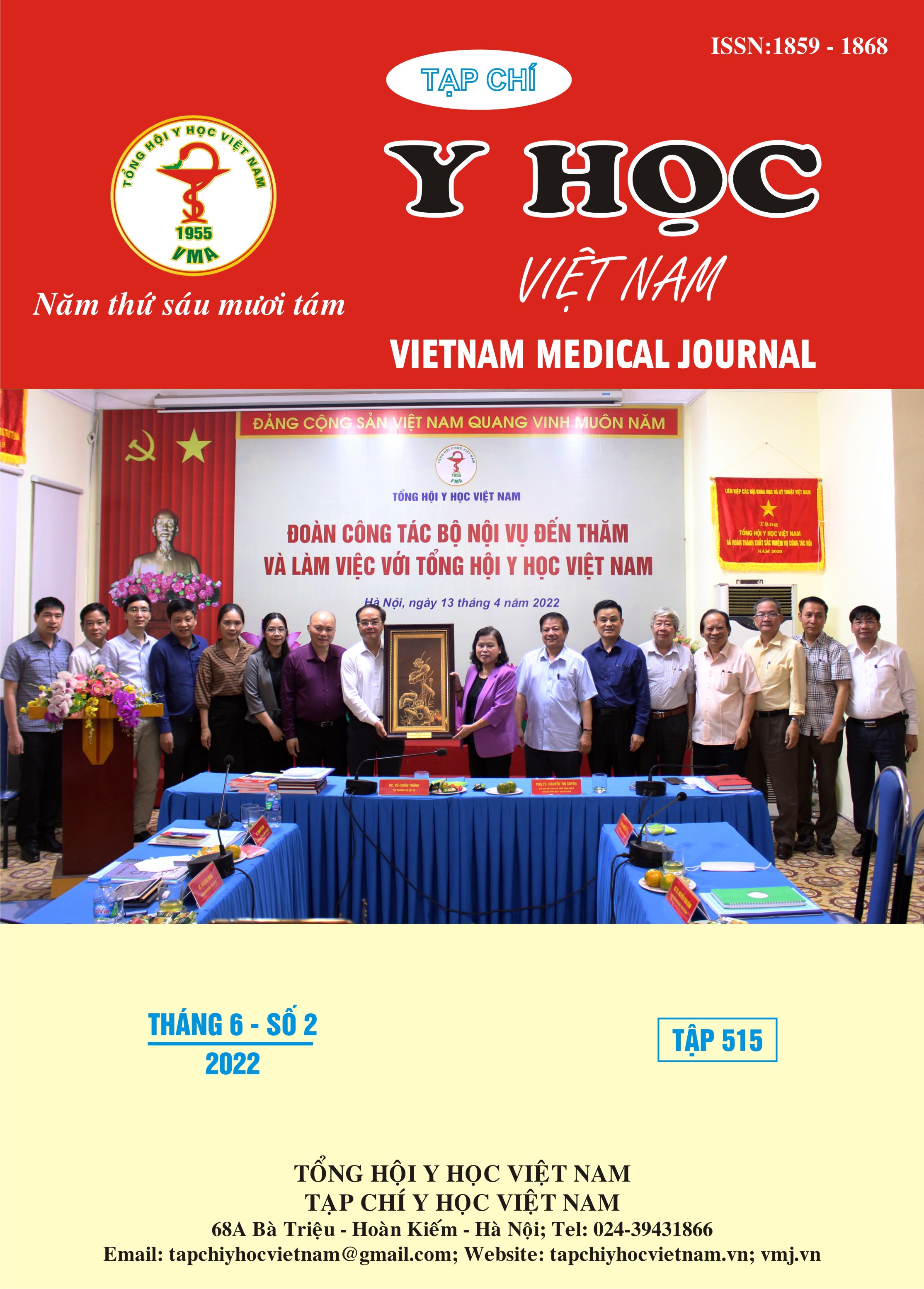INVESTIGATING THE VENOUS THROMBOEMBOLISM AND HEMORRHAGIC COMPLICATIONS IN CRITICALLY ILL PATIENTS WITH COVID-19 AT THE 5G FIELD HOSPITAL
Main Article Content
Abstract
Objectives: This study aims to investigate the rate and risk factors of venous thromboembolism and hemorrhagic complications in critically ill COVID-19 patients. Subjects and methods: 98 critically ill COVID-19; diagnosed and graded according to WHO bleeding; of which 43 patients underwent doppler ultrasound assessment of VTE, acute pulmonary embolism was diagnosed according to the ESC in 2014. Results: hemorrhage occurred in 21.4% of critically ill COVID-19 patients; mostly grade 1 and grade 2 bleeding, accounting for 11.3% and 7.1%, respectively; grade 3 was 2.0% and grade 4 was 1.0%. Administration of anticoagulants at intermediate and therapeutic doses increased the risk of bleeding. The incidence of pulmonary embolism and deep venous thromboembolism (VTE) among 43 critical COVID-19 patients were 11.63% and 37.21%, respectively. The elevated levels of D-dimer and CRP at the admission time were the risk factors for VTE. The Area under the ROC curves (AUC) of D-dimer and CRP for VTE were 0.840 (p< 0.05) and 0.743 (p< 0.05), respectively. Conclusions: hemorrhagic complications were common in critically ill COVID-19 patients, mostly mild hemorrhage. The rate of PE and VTE of critical COVID-19 patients were 37.21% and 11.63%, respectively. D-dimer and CRP test at the admission time have prognostic value for venous thromboembolism in critical COVID-19 patients.
Article Details
Keywords
COVID-19, anticoagulation, hemorrhage, deep venous thromboembolism, pulmonary embolism
References
2. European Heart Journal. ESC Guidelines on the diagnosis and management of acute pulmonary embolism; European Heart Journal (2014) 35, 3033–3080.
3. Filippo Pieralli, Incidence of deep vein thrombosis through an ultrasound surveillance protocol in patients with COVID-19 pneumonia in non-ICU setting: A multicenter prospective study, Aleksandar R. Zivkovic, Heidelberg University Hospital, GERMANY.
4. Hanny Al-Samkari, Rebecca S. Karp Leaf, Walter H. Dzik, Jonathan C. T. Carlson, Annemarie E. Fogerty, Anem Waheed, Katayoon Goodarzi, Pavan K. Bendapudi, Larissa Bornikova, Shruti Gupta, David E. Leaf, David J. Kuter, Rachel P. Rosovsky. COVID-19 and coagulation: bleeding and thrombotic manifestations of SARS-CoV-2 infection. THROMBOSIS AND HEMOSTASIS| JULY 23, 2020
5. Maximilian Ackermann, Stijn E Verleden, Mark Kuehnel, Axel Haverich, Tobias Welte, Florian Laenger, Arno Vanstapel, Christopher Werlein, Helge Stark, Alexandar Tzankov,William W Li, Vincent W Li, Steven J Mentzer, Danny Jonigk. Pulmonary Vascular Endothelialitis, Thrombosis, and Angiogenesis in Covid-19. N Engl J Med, 2020 Jul 9;383(2):120-128.
6. Na Cui, Chunguo Jiang, Hairong Chen, Liming Zhang and Xiaokai Feng. Prevalence, risk, and outcome of deep vein thrombosis in acute respiratory distress syndrome; Thrombosis Journal (2021) 19:71
7. World Health Organization. https://www.researchgate.net/figure/Summary-of-the Modified-WHO-Bleeding-Scale_tbl2_268207748
8. Young Joo Suh, MD, PhD et al. Pulmonary Embolism and Deep Vein Thrombosis in COVID-19: A Systematic Review and Meta-Analysis. Radiology 2021; 298:E70–E80.


